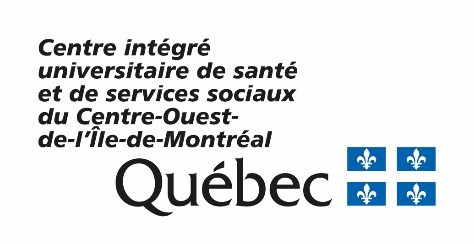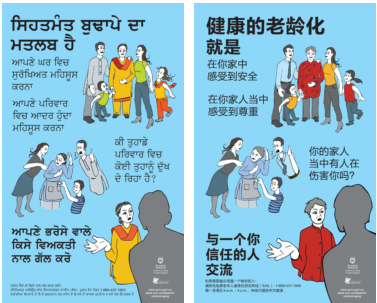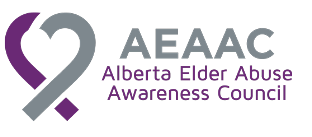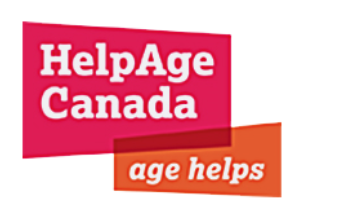Par Charles Bergeron
Conseiller principal, Mobilisation des patients et du public
Association médicale canadienne
Chers membres de l’Alliance pour une stratégie nationale sur les aînés,
La semaine dernière, le député de la circonscription ontarienne de Nickel Belt, Marc Serré, a déposé une motion devant la Chambre des communes pour demander au gouvernement fédéral « [d’] offrir une meilleure qualité de vie et l’égalité à tous les aînés [grâce à] la mise en œuvre d’une stratégie nationale pour les aînés ».
Pour plusieurs acteurs des centres d’hébergement et de soins de longue durée (CHSLD), la maltraitance envers les résidents est devenue une préoccupation de taille. Dans le but de développer une politique qui colle à la réalité de ces acteurs, une équipe spécialisée en maltraitance et composée de praticiens, gestionnaires et chercheurs du Québec a entrepris une consultation à la grandeur de la province. En tout, 105 acteurs incluant des gestionnaires, des employés de CHSLD, des représentants de comités de résidents/usagers, des commissaires aux plaintes et des représentants de syndicats de 9 régions administratives du Québec ont répondu à l’appel. Les participants étaient invités à partager leurs opinions et expériences pour chacun des thèmes suivants :
Vous êtes invités à participer à notre assemblée générale annuelle
le jeudi 22 septembre
entre 10h et 12h00 (heure du Pacifique)
13h et 15h00 (heure de l'Est)
Inscrivez-vous dès aujourd'hui
Une fois votre inscription complétée, vous recevrez un courriel contenant les informations de connection pour l'A.G.A

Documents pour l'AGA:
Rapport Annuel AGA 2015
Rapport financier vérifié
Biographies des candidats
Rapport sur le Projet de partage des savoirs
Rejoignez-nous le 22 septembre pour élire de nouveaux membres au conseil d'administration, passer en revue les récentes activités du Réseau et participer au webinaire
Impact collectif, participation communautaire et leadership collaboratif
présenté par Sylvia Cheuy, directrice du Tamarack Institute.
Vous recevrez les intructions pour vous connecter lorsque vous aurez complété votre inscription à l'assemblée générale annuelle.
Retrouvez le programme de l'AGA ici
Élection du conseil d'administration
Les membres du Réseau canadien pour la prévention du mauvais traitement des ainés ont l'opportunité de voter pour élire les membres du conseil d'admnistration.Les membres qui ne pourront pas assister à l'assemblée générale annuelle 2016 en personne auront la possibilité de voter à l'avance. En soumettant leur vote à l'avance, les membres absents serez considérés commen présents à l'AGA dans le but d'élire la liste de candidats suggérée.
Au vu du nombre de candidats sélectionnés pour remplir les postes vacants, les membres du RCPMTA sont invités à voter pour ou contre un groupe de candidats.
Voici la liste des candidats sélectionnés
NOUVEAUX CANDIDATS
Andrew Elinesky, ON
Andrew est directeur financier et vice-président chez McEwen Mining inc. Et a une grande expérience des sociétés ouvertes. Andrew est un leader actif et a l’habitude d’établir des stratégies à long terme et de mettre en œuvre les initiatives nécessaires à leur réalisation. Andrew a géré des projets au Canada et à l’étranger et a un intérêt certain pour la gouvernance. Il recherche une opportunité de s’impliquer dans la communauté et de soutenir une organisation dont il partage les valeurs. Andrew est un défenseur des droits et du bien-être des individus, particulièrement des ainés. Il espère pouvoir créer des connections entre individus et organisations et partager les activités du RCPMTA avec d’autres réseaux.
Jennifer Gurke, SK
Jennifer est travailleuse sociale dans le Geriatric Evaluation and Management Program de la Saskatoon Health Region, elle fait aussi partie du groupe de travail sur la maltraitance des ainés de la Saskatchewan. Jennifer a une maîtrise en travail social avec une spécialisation en leadership pour organisations et services communautaires. Entre 2011 et 2013, elle fut coordinatrice du modèle de réponse à la maltraitance des ainés au Centre Kerby de Calgary. Jennifer était responsable de développement de programmes et d’activités en accordance avec la mission du Centre, des services de la famille de Calgary et des services de police de Calgary. Elle a aussi développé et supervisé des protocoles collaboratifs pour l’équipe pluridisciplinaire de réponse à la maltraitance des ainés.
Barb Hood, NWT
Barb Hood est directrice du NWT Seniors’ Society depuis 1999. Barb détient un certificat en gérontologie de Mount Royal University et un certificat en administration des affaires d’Aurora College. Barba a été directrice, secrétaire de direction et directrice des programmes pour de nombreuses organisations dont Northern Addiction Services, Inuvik Regional Hospital, YWCA Yellowknife, et Canadian Mental Health Association/NWT Division. Barb travaille dans les communautés des Territoires du Nord-Ouest depuis plus de 30 ans et a de l’expérience dans le domaine du leadership, de la gouvernance, du développement et de l’animation de programmes, développement communautaire et rédaction de demandes de subventions. Barb est passionnée par les questions de justice sociale et fait partie de nombreux comités et agences dans les Territoires du N.-O. Elle est actuellement membre du comité Research Ethics Review Committee à l’Aurora Research Institute est fait partie du conseil d’administration de l’Active Living Coalition for Older Adults. De par son travail à Seniors’ Society, Barb a fait de nombreuses présentations sur la prévention de la maltraitance des ainés à des conférence et ateliers au niveau local, régional et national. Barb a aussi contribué au rajout de la protection des ainés à la première législation sur la Protection contre la violence domestique qui a été mise en place en 2005.
Kathy Majowski, MB
Kathy est infirmière dans un établissement de soins de longue durée, ainsi qu’éducatrice et a développé de nombreux programmes de formation. Kathy travaille en collaboration avec les membres d’une équipe de santé pluridisciplinaire. Au cours de ses 13 ans d’expérience, Kathy a eu l’opportunité de travailler dans une variété de résidences et de spécialités, ce qui lui a permis de comprendre les besoins de ses patients en soins intensifs, soins à long terme et soins communautaires. Son travail en tant qu’éducatrice lui a permis de développer ses capacités de leadership et de développement de procédures.
MEMBRES ACTUELS DU CONSEIL POURSUIVANT UNE RÉELECTION
Sherry Baker, BC
Sherry Baker est la directrice exécutive de l'Association de Colombie Britannique des réseaux de réponse communautaire depuis 2010. Au cours de sa carrière, Sherry s'est impliquée dans des nombreuse organisations clés de C.-B. qui ont trait aux questions de maltraitance, de sécurité ou de justice. (Ishtar Transition Housing Society et Aldergrove Neighbourhood; BC Centre for Elder Advocacy and Support et South Fraser Family Court and Youth Justice Committee; Minerva Foundation for B.C. Women).Sherry a participé à et présidé de nombreux conseils aux niveaux provincial, régional et local, dont le Conseil d'inscription pour travailleurs sociaux et l'Ordre des ergothérapeutes de C.-B.
Leah Cohen, ONT
Leah a travaillé pendant 18 ans pour le Gouvernement de la province d’Ontario en tant qu’analyste politique, avec une spécialisation sur les questions ayant trait aux aînés. Son portefeuille comprenait les questions essentielles que rencontre une population vieillissante, avec un intérêt particulier pour la question de la négligence et de la maltraitance des aînés. Leah a été recrutée pour devenir un des membres clés d’une équipe travaillant au développement d’une stratégie pour combattre la maltraitance des aînés en Ontario. Elle a joué un rôle crucial jusqu’à la mise en place du projet. Après avoir pris sa retraite du gouvernement, Leah a mis ses connaissances et son expérience à bon usage en travaillant dans le domaine de la prévention des mauvais traitements dans l’arène locale, nationale et internationale ainsi que dans le domaine de la transmission de savoir. Leah été coordinatrice régionale de l’équipe en charge de la maltraitance pour NICE à Toronto.
Susan Crichton, MB
Depuis 2001, Susan Crichton est consultante en maltraitance des aînés auprès du Secrétariat manitobain du mieux-être des personnes âgées et du vieillissement en santé. Elle préside aussi le groupe stratégique provincial sur la maltraitance des aînés. Susan passe une grande partie de son temps à éduquer et former différents groupes pour leur apprendre à prévenir la maltraitance des personnes âgées. De 2008 à 2011 Susan eu l’opportunité de travailler sur l’Initiative fédérale de lutte contre les mauvais traitements envers les aînés, grâce à un programme d’échange avec l’Agence Canadienne de la Santé Publique.
Kelly Heisz, NFL
Kelly est la actuellement la secrétaire du conseil d'administration du RCPMTA. Kelly est la directrice exécutive du Centre de ressources pour séniors de Terre Neuve et de Labrador. Kelly est diplômée de Memorial University, avec un Baccalauréat en arts et éducation. Depuis les 25 dernières années, sa carrière s'est développée dans le secteur sans but lucratif, et s'est focalisée sur l'implication communautaire et le renforcement des capacités dans le but d'effectuer des changements à la qualité de vie et au bien-être des citoyens au niveau local. Le Centre de ressource des Séniors a joué un rôle de leader dans les questions affectant les aînés, grâce à la participation de centaines de bénévoles, et de partenaires communautaires à tous les niveaux. Le RCPMTA est l'aboutissement et l'un des plus grands succès de l'organisation.
Sharon Mackenzie, BC
Sharon (Baccalauréat et Maîtrise en Éducation) est la fondatrice et la directrice de i2i Intergenerational Society of Canada, un connecteur national et banque de ressources intergénérationnelles. Sharon a enseigné pendant 35 ans, du niveau maternelle jusqu'à l'université. Pendant plus de dix ans, Sharon a développé et testé un modèle d'immersion intergénérationnelle à succès en C.-B. : le projet Meadows School. Ce projet unique au monde a réussi à faire changer les attitudes âgistes chez des individus de toutes générations, contribuant au passage à l'amélioration de leur santé. Sharon est à l’origine de la Journée intergénérationnelle du Canada, le 1er juin, (lancée en 2010), qui est célébrée par plus de 100 villes, parmi les provinces et territoires. Cette journée sert aussi de rappel pour le 15 juin, la Journée internationale de sensibilisation aux mauvais traitements envers les personnes âgées. Sharon, est une référence reconnue internationalement dans le domaine des relations intergénérationnelles (qui visent à développer le sens communautaire et la prévention à long terme de la maltraitance des seniors). Elle est consultante Intergénérationnelle et pédagogique, conférencière et organisatrice d'ateliers dans les communautés, le secteur de la santé communautaire, les organisations pédagogiques, les groupes des Premières Nations, le gouvernement et les organisations d'aînés.
Pat Power, AB
Pat est membre du Partenariat de protection des séniors à Edmonton (anciennement l’équipe d’intervention contre la maltraitance des aînés) et occupe le poste de travailleur social pour le développement communautaire. Son rôle est de juger les lacunes dans les services en charge des questions de maltraitance des aînés, ainsi que d’éduquer étudiants and professionnels en contact avec les personnes âgées. Pat est un membre actif du réseau Alberta Elder Abuse Awareness Network depuis 5 ans. Il a notamment planifié et exécuté la première conférence traitant de la maltraitance des aînés en Alberta en 2011. Il a aussi fait partie du comité de planification pour la conférence provinciale 2015. Pat est un travailleur social assermenté et a achevé une formation en gérontologie à l’Université d’Alberta. Pat travaille actuellement au développement de projets Neighbours, Friends and Families à Edmonton, dans le cadre de cette initiative pancanadienne.
Raeann Rideout, ON
Raeann est actuellement consultante en maltraitance des aînés pour Elder Abuse Ontario (anciennement Réseau ontarien pour la prévention de la maltraitance des aînés) dans la région Centre-Est. Raeann travaille dans le domaine de la prévention de la maltraitance des aînés depuis plus de 18 ans. Dans son rôle actuel, elle procure formation sur le terrain ainsi qu’éducation du public, participe à la planification de projet et d’évènements communautaires, renforce les partenariats communautaires et collabore avec des intervenants locaux, provinciaux et nationaux pour améliorer la réponse à la maltraitance des personnes âgées. Raeann a préalablement travaillé pour la Fondation manitobaine contre les addictions en tant que Consultante en éducation préventive, ainsi que pour le Directorat des Aînés de Manitoba, en tant que Consultante. Raeann fut aussi Gestionnaire de projet pour la Force d’intervention contre le mauvais traitement des aînés de Kingston et Frontenac pendant 5 ans.
Jocelyn Yerxa, NS
Jocelyn Yerxa est assistante directrice du développement communautaire et des programmes pour le Département des aînés de la Nouvelle Écosse. Jocelyn se concentre sur la construction d’une capacité communautaire pour gérer les questions relatives aux aînés. Depuis deux ans, Jocelyn est en charge du développement d’approches réparatrices pour le projet de sécurité des séniors dans la province. Ce projet est une entreprise collaborative qui implique plus de 30 représentants de la communauté, du gouvernement, de la police, des services de santé, du droit, ainsi que des bénévoles séniors. Elle perçoit une approche réparatrice comme l’approche la plus prometteuse pour aider les familles, communautés et institutions impliquées à gérer les conflits et les préjudices. Avant de rejoindre le Département des aînés, Jocelyn a développé une expérience extensive dans le secteur à but non lucratif en tant qu’éducatrice et facilitatrice communautaire
Par Le Réseau FADOQ
Il est bien difficile pour une personne âgée de reconnaître qu’elle est victime de maltraitance lorsque le méfait est perpétré par un proche. Il est tout aussi difficile de s’avouer victime d’une escroquerie par téléphone de peur d’avoir l’air idiot. Et que dire de la crainte de représailles pour avoir dénoncé un mauvais traitement?
Page 13 sur 18























